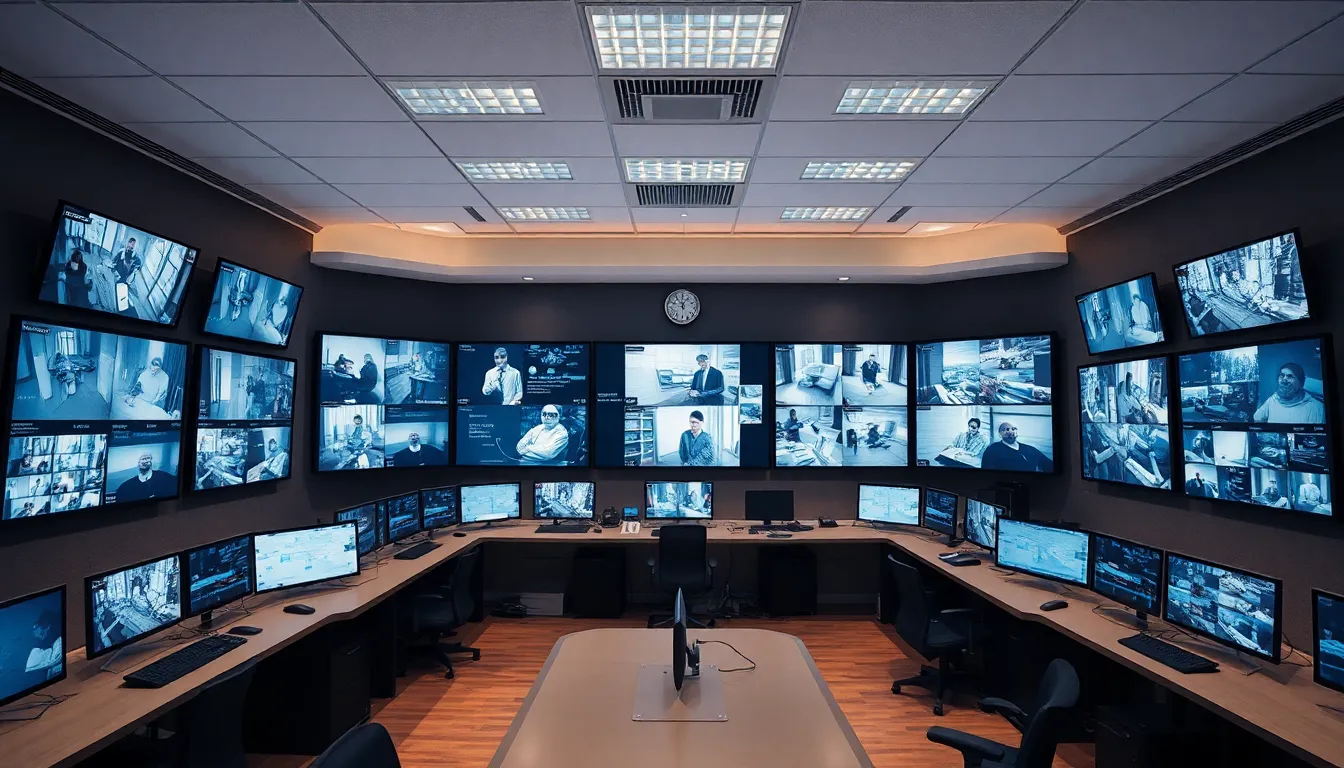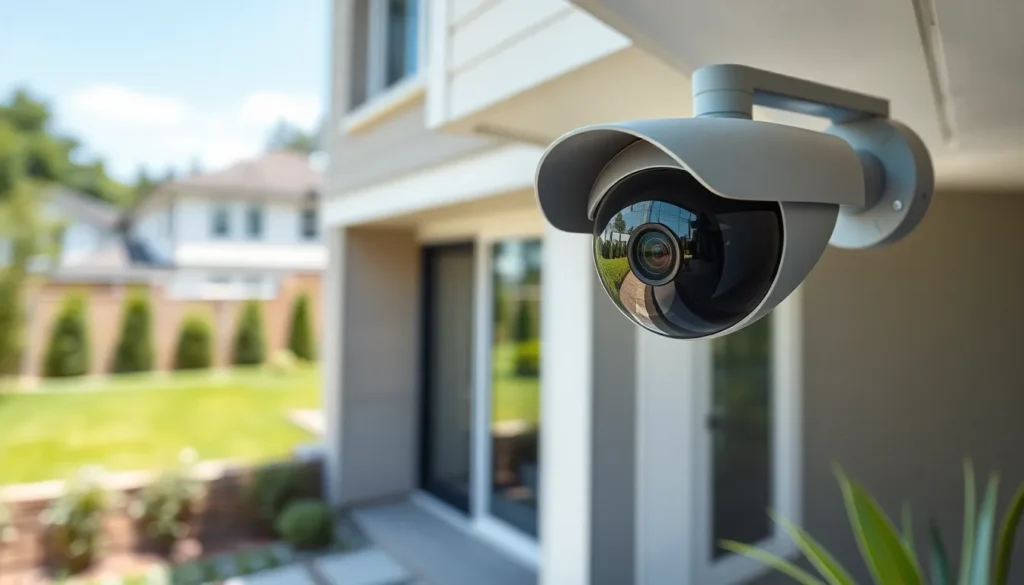Table of Contents
ToggleIn an era where security threats are evolving rapidly, upgrading security systems has become essential for homes and businesses alike. Traditional measures often fall short against sophisticated intruders, making it crucial to invest in the latest technology. From smart cameras to advanced alarm systems, the options available today offer enhanced protection and peace of mind.
Upgrading security systems not only improves safety but also increases property value. Modern solutions often integrate seamlessly with smart home devices, providing users with real-time monitoring and control from anywhere. As threats become more complex, staying ahead with the right upgrades can make all the difference in safeguarding what matters most.
Importance Of Security System Upgrades
Upgrading security systems is essential for maintaining safety and adapting to modern threats. These enhancements significantly improve protection for both homes and businesses.
Enhancing Safety and Protection
Upgraded security systems offer advanced features that enhance overall safety. Smart cameras provide high-definition video and real-time monitoring, allowing for immediate response to suspicious activities. Motion sensors detect unexpected movements, triggering alerts to homeowners or security personnel. Improved alarm systems can differentiate between false alarms and actual threats, minimizing response delays. Investing in these technologies increases peace of mind, knowing that comprehensive safety measures are in place.
Staying Ahead of Threats
Staying ahead of evolving threats requires proactive security measures. Criminals continuously develop new strategies to bypass traditional systems. Upgraded security solutions incorporate artificial intelligence to analyze patterns and detect anomalies, providing a more robust defense. Regular updates ensure systems address the latest vulnerabilities. Implementing these upgrades helps maintain a strong security posture and protects valuable assets from potential breaches.
Types Of Security System Upgrades

Upgrading security systems involves both hardware and software improvements to create comprehensive protection. Each type plays a vital role in enhancing overall security efficacy.
Hardware Upgrades
Hardware upgrades focus on physical components to bolster security. Key enhancements include:
- High-Definition Cameras: Replacing outdated cameras with HD models provides clearer images, aiding in the identification of intruders.
- Smart Sensors: Installing advanced motion sensors enhances responsiveness to movement, ensuring prompt alerts during suspicious activity.
- Alarm Systems: Upgrading to modern alarm systems improves false alarm accuracy and quickens emergency response times.
- Access Control Devices: Implementing smart locks or biometric systems fortifies entrance security, allowing only authorized individuals access to facilities.
- Surveillance Drones: Employing drones for external monitoring expands coverage areas and provides real-time aerial views of properties.
Software Enhancements
Software enhancements address the digital aspects of security systems. Important upgrades include:
- Real-Time Monitoring Applications: Integrating mobile apps allows users to monitor their properties remotely, receiving immediate notifications of potential threats.
- AI-Powered Analytics: Utilizing artificial intelligence to analyze security footage detects suspicious behavior, improving incident response.
- Firmware Updates: Regularly updating system firmware ensures protection against the latest cyber vulnerabilities, maintaining system integrity.
- Cloud Storage Solutions: Transitioning to cloud storage allows for secure data storage, enabling easy access to recorded footage without the risk of local hardware failure.
- Integration with Smart Home Systems: Enhancing compatibility with smart home devices enhances control, providing a centralized platform for managing security features.
These upgrades collectively elevate security systems’ performance, addressing evolving threats effectively.
Benefits Of Upgrading Your Security System
Upgrading a security system offers pivotal advantages. Enhanced monitoring and increased reliability play significant roles in ensuring comprehensive protection.
Improved Monitoring Capabilities
Upgraded security systems provide improved monitoring capabilities through advanced features. High-definition video and real-time alerts allow for effective surveillance of properties. Modern cameras often include night vision and wide-angle lenses, ensuring clear views in various conditions. Smart sensors can detect unusual activities, triggering immediate notifications to property owners. Accessible monitoring via mobile applications enables real-time oversight, empowering users to respond promptly to potential threats.
Increased System Reliability
Increased system reliability results from incorporating cutting-edge technology in security upgrades. Advanced alarm systems significantly reduce false alarms, ensuring accurate threat detection. Robust hardware components, such as weather-resistant cameras and tamper-proof sensors, enhance durability and effectiveness. Regular software updates guard against emerging vulnerabilities, maintaining optimal performance. Additionally, incorporating cloud storage offers data redundancy, safeguarding recorded footage against local failures. Such reliability fosters peace of mind, knowing that the security system operates effectively around the clock.
Challenges In Implementing Upgrades
Implementing security system upgrades involves various challenges that organizations and homeowners face. Addressing these issues ensures successful integration and long-term effectiveness.
Cost Considerations
Cost often poses a significant challenge in upgrading security systems. Expenses encompass hardware, software, installation, and ongoing maintenance. High-quality equipment, such as advanced cameras and alarm systems, demands investment, yet budget constraints may limit choices. Organizations need to evaluate return on investment by comparing potential losses from security breaches against upgrade costs. Exploring financing options or phased upgrades can help manage upfront expenses while still enhancing security.
Technical Difficulties
Technical difficulties frequently arise during the upgrade process. Compatibility with existing systems may pose hurdles, requiring additional modifications or complete replacements. Installation challenges, including network connectivity issues and configuration complexities, can lead to delays. Staff training on new technologies also remains crucial to ensure efficient operation. Engaging professional installation services can mitigate these issues, providing expertise in seamless system integration. Addressing these technical difficulties promotes a smoother transition and enhances overall security effectiveness.
Upgrading security systems is a vital step in safeguarding homes and businesses against modern threats. By investing in advanced technology and features, property owners can significantly enhance their protection and overall peace of mind. The integration of smart devices and real-time monitoring capabilities not only improves safety but also adds value to properties.
While challenges like costs and technical difficulties may arise, the long-term benefits of a robust security system far outweigh these concerns. With the right approach and proactive measures, individuals can ensure their security systems remain effective against evolving threats. Prioritizing these upgrades is essential for maintaining a secure environment in today’s dynamic landscape.





